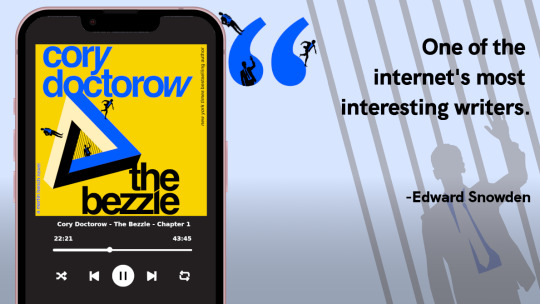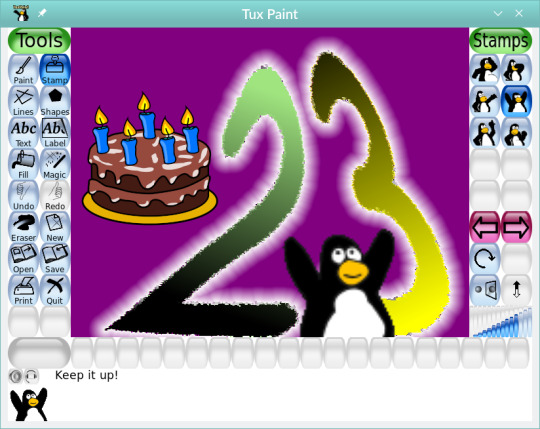#EdTech**
Explore tagged Tumblr posts
Text
Unlock Your Potential: Free Online Courses and Free Cutting-Edge AI Tools at Your Fingertips

In today's rapidly evolving world, continuous learning and access to innovative tools are no longer luxuries—they are necessities. Whether you're looking to upskill in your current field, explore a new passion, or simply stay ahead of the curve, the right resources can make all the difference. We're excited to introduce a platform designed to empower you on your journey of growth and discovery: a comprehensive hub offering free online courses from the world's leading universities and a vast collection of cutting-edge AI tools, all accessible with a one-time investment.
Elevate Your Education with World-Class Online Courses
Imagine having access to courses from prestigious institutions like Harvard University, Stanford University, IIT Kharagpur, MIT, Rice University, IIT Madras, Columbia University, Cornell University, the University of Edinburgh, Purdue University, the University of Pennsylvania, Duke University, the University of Michigan, and The Open University, among many others. Our platform curates a vast library of freely available online courses from these and countless other renowned universities across the globe.
Whether you're interested in computer science, business, humanities, arts, or any other discipline, you'll find a wealth of knowledge waiting to be explored. These courses are often the same materials used in on-campus programs, providing you with a high-quality educational experience without the hefty tuition fees. Expand your horizons, deepen your understanding, and gain valuable skills, all on your own schedule and at your own pace.
Discover the Power of AI: Tools for Every Need
In addition to our extensive collection of online courses, we offer access to over 1000+ AI tools designed to streamline tasks, enhance creativity, and boost productivity across a wide spectrum of applications. From generating stunning visuals to automating tedious workflows, AI is revolutionizing the way we live and work.1
Our platform brings together a diverse range of AI-powered tools, categorized for easy discovery:
Content Creation: Generate blog posts, articles, marketing copy, and more in seconds.2
Image & Video Editing: Enhance photos, create videos, and design graphics with AI-powered precision.
Business & Productivity: Utilize AI for data analysis, market research, lead generation, and task automation.
Coding & Development: Get assistance with code generation, debugging, and project management.
Personal & Fun: Explore AI tools for art generation, personalized recommendations, entertainment, and more.
Whether you're an entrepreneur looking to optimize your marketing efforts, a student seeking help with research, a creative professional seeking inspiration, or simply someone curious about the capabilities of artificial intelligence, our platform provides the tools you need to unlock your potential.
Unlock a World of Knowledge for Just $19.99
For a one-time payment of only $19.99, you gain unlimited access to our ever-expanding library of 1000+ digital university courses and a massive collection of PDF books spanning numerous genres. Furthermore, you'll have continuous access to over 1000+ cutting-edge AI tools, empowering you with the resources you need to learn, create, and innovate.
This is more than just a collection of resources; it's an investment in yourself. It's an opportunity to access elite education from renowned universities worldwide and harness the power of artificial intelligence to achieve your goals. Don't miss out on this incredible opportunity to unlock a world of knowledge and tools.
Ready to embark on your journey of learning and innovation? Join our platform today for a one-time payment of $19.99 and gain lifetime access to a wealth of free online courses and powerful AI tools. You will get more than you can handle for courses and AI Tools for free, Just register those different websites. Click here to
These links provide access to various latest AI tools and courses. Simply register on each site to begin. Please note that we are reselling third-party content for $19.99. We do not own or create these courses. Due to the nature of digital downloads, all sales are final and non-refundable upon purchase.
purchase. or go to:
Thanks for reading
www.matanmediallc.com
Key Features:
Free Online Courses: Access courses from top universities worldwide.
1000+ AI Tools: Discover a vast collection of AI tools for various applications.
One-Time Payment: Get lifetime access for just $19.99.
Elite Education: Learn from institutions like Harvard, Stanford, MIT, and more.
Diverse AI Categories: Explore tools for content creation, image editing, business, coding, and personal use.
Massive PDF Books: Gain access to an extensive library of digital books.
Skill Enhancement: Improve your knowledge and skills at your own pace.
Productivity Boost: Utilize AI to streamline tasks and enhance efficiency.
Affordable Learning: High-quality resources at an accessible price.
#* **#FreeOnlineCourses**#AITools**#LearnOnline**#EducationForAll**#Upskill**#LifelongLearning**#HarvardCourses**#StanfordOnline**#MITOpenCourseware**#AICommunity**#DigitalLearning**#EdTech**#TechTools**#KnowledgeIsPower**#UnlockYourPotential**#OnlineEducation**#PersonalDevelopment**#FutureSkills**#Innovation**#SmartTools**
2 notes
·
View notes
Note
Your posts make me happy whenever I see them because one day, I would like to become a teacher. I want to teach possibly kindergarten or first grade. Also, I think your posts can be applicable in non-school settings too in some cases. Thank you for such a wonderful blog! <3
Thank you! So much! I don't get many asks so this means a lot to me :)
If you have a bachelor's, I recommend you try substitute teaching. Look up the school district that you live in, check the careers page, and see how they hire their substitutes. Usually, it's done through a contract agency. Most schools near me use ESS. Typically it's $150/day in New Jersey, and it's very easy to get hired so long as you go through criminal background screening first.
I have about 15 different jobs in my career history, spanning many industries. Teaching has been the most meaningful and rewarding by far. It's also been the most difficult by far. Do not go in unprepared.
Do not go through an education program until you have ample experience in the classroom to see if you are a good fit for the job. That's what I did, and it did not work out. You want to see your strengths and weaknesses in the real setting before you invest your time.
And it's worth it if you can stick the landing.
#thank you for raising your hand#career advice#I'm working towards a career in tech so I can get into EdTech and do independent content creation on the side
150 notes
·
View notes
Text

As many of you know, I run a program called Skype a Scientist! We match scientists with classrooms, scout troops, libraries, and more for Q&A sessions about science. We ALSO run monthly livestreams with hand-picked scientists on zoom webinar.
Here are the upcoming sessions. All are welcome to attend, and all sessions are free.

RSVP for Shark Scales and Tails here

RSVP for Sea Star Feet here

RSVP for Finding Medicine in Plants here

RSVP for Pokemon here
Also!!! and critically!!! If you want to get matched with a scientist for YOUR classroom, scout troop, library, etc, we would love love love to match you with one of our scientist volunteers. That's what we're here for. Sign up here.
#Science education#science teacher#sciteach#ed tech#edtech#Please tell a teacher you know#We have very little advertising money#reblog for the kids
526 notes
·
View notes
Text
American education has all the downsides of standardization, none of the upsides

Catch me in Miami! I'll be at Books and Books in Coral Gables on Jan 22 at 8PM.

We moved to America in 2015, in time for my kid to start third grade. Now she's a year away from graduating high school (!) and I've had a front-row seat for the US K-12 system in a district rated as one of the best in the country. There were ups and downs, but high school has been a monster.
We're a decade and a half into the "common core" experiment in educational standardization. The majority of the country has now signed up to a standardized and rigid curriculum that treats overworked teachers as untrustworthy slackers who need to be disciplined by measuring their output through standard lessons and evaluations:
https://en.wikipedia.org/wiki/Common_Core
This system is rigid enough, but it gets even worse at the secondary level, especially when combined with the Advanced Placement (AP) courses, which adds another layer of inflexible benchmarks to the highest-stakes, most anxiety-provoking classes in the system:
https://en.wikipedia.org/wiki/Advanced_Placement
It is a system singularly lacking in grace. Ironically, this unforgiving system was sold as a way of correcting the injustice at the heart of the US public education system, which funds schools based on local taxation. That means that rich neighborhoods have better funded schools. Rather than equalizing public educational funding, the standardizers promised to ensure the quality of instruction at the worst-funded schools by measuring the educational outcomes with standard tools.
But the joke's on the middle-class families who backed standardized instruction over standardized funding. Their own kids need slack as much as anyone's, and a system that promises to put the nation's kids through the same benchmarks on the same timetable is bad for everyone:
https://pluralistic.net/2021/11/28/give-me-slack-2/
Undoing this is above my pay-grade. I've already got more causes to crusade on than I have time for. But there is a piece of tantalyzingly low-hanging fruit that is dangling right there, and even though I'm not gonna pick it, I can't get it out of my head, so I figured I'd write about it and hope I can lazyweb it into existence.
The thing is, there's a reason that standardization takes hold in so many domains. Agreeing on a common standard enables collaboration by many entities without any need for explicit agreements or coordination. The existence of the ANSI/SAE J563 standard automobile auxiliary power outlet (AKA "car cigarette lighter") didn't just allow many manufacturers to make replacement lighter plugs. The existence of a standardized receptacle delivering standardized voltage to standardized contacts let all kinds of gadgets be designed to fit in that socket.
Standards crystallize the space of all possible ways of solving a problem into a range of solutions. This inevitably has a downside, because the standardized range might not be optimal for all applications. Think of the EU's requirement for USB-C charger tips on all devices. There's a lot of reasons that manufacturers prefer different charger tips for different gadgets. Some of those reasons are bad (gouging you on replacement chargers), but some are good (unique form-factor, specific smart-charging needs). USB-C is a very flexible standard (indeed, it's so flexible that some people complain that it's not a standard at all!) but there are some applications where the optimal solution is outside its parameters.
And still, I think that the standardization on USB-C is a force for good. I have drawers full of gadgets that need proprietary charger tips, and other drawers full of chargers with proprietary tips, and damned if I can make half of them match up. We've continued our pandemic lockdown tradition of my wife cutting my hair in the back yard, and just tracking the three different charger tips for the three clippers she uses is an ongoing source of frustration. I'd happily trade slightly sub-optimal charging for just being able to plug any of those clippers into the same cable I charge my headphones, phone, tablet and laptop on.
The standardization of American education has produced all the downsides of standardization – a rigid, often suboptimal, one-size-fits-all system – without the benefits. With teachers across America teaching in lockstep, often from the same set texts (especially in the AP courses), there's a massive opportunity for a commons to go with the common core.
For example, the AP English and History classes my kid takes use standard texts that are often centuries old and hard to puzzle out. I watched my kid struggle with texts for learning about "persuasive rhetoric" like 17th century pamphlets that inspired anti-indigenous pogroms with fictional accounts of "Indian atrocities."
It's good for American schoolkids to learn about the use of these blood libels to excuse genocide, but these pamphlets are a slog. Even with glossaries in the textbooks, it's a slow, word-by-word matter to parse these out. I can't imagine anyone learning a single thing about how speech persuades people just by reading that text.
But there's nothing in the standardized curriculum that prevents teachers from adding more texts to the unit. We live in an unfortunate golden age for persuasive texts that inspire terrible deeds – for example, kids could also read core Pizzagate texts and connect the guy who shot up the pizza parlor to the racists who formed a 17th century lynchmob.
But teachers are incredibly time-constrained. For one thing, at least a third of the AP classroom time seems to be taken up with detailed instructions for writing stilted, stylized "essays" for the AP tests (these are terrible writing, but they're easy to grade in a standardized way).
That's where standardization could actually deliver some benefits. If just one teacher could produce some supplemental materials and accompanying curriculum, the existence of standards means that every other teacher could use it. What's more, any adaptations that teachers make to that unit to make them suited to their kids would also work for the other teachers in the USA. And because the instruction is so rigidly standardized, all of these materials could be keyed to metadata that precisely identified the units they belonged to.
The closest thing we have to this are "marketplaces" where teachers can sell each other their supplementary materials. As far as I can tell, the only people making real money from these marketplaces are the grifters who built them and convinced teachers to paywall the instructional materials that could otherwise form a commons.
Like I said, I've got a completely overfull plate, but if I found myself at loose ends, trying to find a project to devote the rest of my life to, I'd be pitching funders on building a national, open access portal to build an educational commons.
It may be a lot to expect teachers to master the intricacies of peer-based co-production tools like Git, but there's already a system like this that K-8 teachers across the country have mastered: Scratch. Scratch is a graphic programming environment for kids, and starting with 2019's Scratch 3.0, the primary way to access it is via an in-browser version that's hosted at scratch.mit.edu.
Scratch's online version is basically a kid- (and teacher-)friendly version of Github. Find a project you like, make a copy in your own workspace, and then mod it to suit your own needs. The system keeps track of the lineage of different projects and makes it easy for Scratch users to find, adapt, and share their own projects. The wild popularity of this system tells us that this model for a managed digital commons for an educational audience is eminently achievable.
So when students are being asked to study the rhythm of text by counting the numbers of words in the sentences of important speeches, they could supplement that very boring exercise by listening to and analyzing contemporary election speeches, or rap lyrics, or viral influencer videos. Different teachers could fork these units to swap in locally appropriate comparitors – and so could students!
Students could be given extra credit for identifying additional materials that slot into existing curricular projects – Tiktok videos, new chart-topping songs, passages from hot YA novels. These, too, could go into the commons.
This would enlist students in developing and thinking critically about their curriculum, whereas today, these activities are often off-limits to students. For example, my kid's math teachers don't hand back their quizzes after they're graded. The teachers only have one set of quizzes per unit, and letting the kids hold onto them would leak an answer-key for the next batch of test-takers.
I can't imagine learning math this way. "You got three questions wrong but I won't let you see them" is no way to help a student focus on the right areas to improve their understanding.
But there's no reason that math teachers in a commons built around the (unfortunately) rigid procession of concepts and testing couldn't generate procedural quizzes, specified with a simple programming language. These tests could even be automatically graded, and produce classroom stats on which concepts the whole class is struggling with. Each quiz would be different, but cover the same ground.
When I help my kid with her homework, we often find disorganized and scattered elements of this system – a teacher might post extensive notes on teaching a specific unit. A publisher might produce a classroom guide that connects a book to specific parts of the common core. But these are scattered across the web, and they aren't keyed to the specific, standard components of common core and AP.
This is a standardized system that is all costs, no benefits. It has no "architecture of participation" that lets teachers, students, parents, practitioners and even commercial publishers collaborate to produce a commons that all may share and improve upon.
In an ideal world, we'd get rid of standardization in education, pay teachers well, give them the additional time they needed to prepare exciting and relevant curriculum, and fund all our schools based on need, not parents' income.
But in the meanwhile, we could be making lemonade of out lemons. If we're going to have standardization, we should at least have the collaboration standards enable.

I'm Kickstarting the audiobook for The Bezzle, the sequel to Red Team Blues, narrated by @wilwheaton! You can pre-order the audiobook and ebook, DRM free, as well as the hardcover, signed or unsigned. There's also bundles with Red Team Blues in ebook, audio or paperback.

If you'd like an essay-formatted version of this post to read or share, here's a link to it on pluralistic.net, my surveillance-free, ad-free, tracker-free blog:
https://pluralistic.net/2024/01/16/flexibility-in-the-margins/#a-commons
504 notes
·
View notes
Text
Tux Paint is 23 today!

33 notes
·
View notes